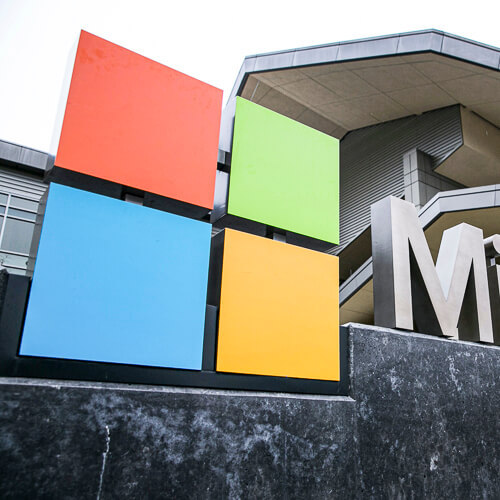Microsoft inches closer to fixed-mobile convergence
'You'll have one device to rule them all and won't have to carry around two mobile phones for business and personal use while still having a distinct separation between work and personal calls,' an exec boasted.

Microsoft's newest innovation for businesses is to allow phone calls made from your cell phone to traverse the cellular network.
The difference is that these calls would emanate from inside of Teams, Microsoft's Slack-like business operating system that is a hybrid of email, an intranet and a company picnic that never ends and follows you everywhere.
Also, Microsoft's long-term ambitions to tightly integrate its offerings into fixed and mobile telecom networks globally are becoming a lot more clear now.
"This is just the beginning in the area of fixed-mobile convergence," said Microsoft's Mahendra Sekaran, VP of program management for Microsoft Teams, said in a video from the company. "In the future, we'll be integrating SMS messaging with Teams chat and you'll also be able to bring your own phone number and device for use with Teams. That way you'll have one device to rule them all and won't have to carry around two mobile phones for business and personal use while still having a distinct separation between work and personal calls. The foundation of this service opens up additional opportunities in the future with Azure for Operators to leverage 5G capabilities and deliver new experiences for our customers."
Figure 1:  (Source: Kristoffer Tripplaar / Alamy Stock Photo)
(Source: Kristoffer Tripplaar / Alamy Stock Photo)
This week Microsoft introduced its new Operator Connect Mobile service for its Teams app. The offering essentially allows Teams voice calls to travel over mobile network operators' 4G and 5G calling services. The result is more reliable voice calls that don't only rely on data connections, as well as tighter integrations between Microsoft's Teams app and the native dialer on Android and iOS smartphones. The offering also supports the ability for a standard voice call to switch over to a Microsoft-controlled Teams video call. However, it currently requires employers to issue capable phones to their employees, rather than supporting employees' existing phones.
"We have been working closely with innovative operator partners including BT, Rogers, Swisscom, Telia and Verizon to bring this capability to customers in their respective service areas starting, later this year," Microsoft wrote of the new service. "We are working with additional operators to expand availability into additional markets."
Importantly, Microsoft said the new service leverages its Azure for Operators offering by connecting mobile networks to its Microsoft Office 365 cloud.
Although Microsoft's new Operator Connect Mobile represents yet another technological step along a unified communications path that Microsoft has been walking for years, it also highlights the company's growing weight in the telecommunications and mobile industry. Microsoft – along with cloud computing rivals Google and Amazon – has been bulking up its networking prowess in an attempt to both add telecommunications services to its software services for its business customers, as well as to sell cloud computing offerings to network operators themselves.
The clearest signs of Microsoft's intentions in the telecommunications industry are its acquisitions of Affirmed Networks, Metaswitch Networks and AT&T's cloud networking operation.
Related posts:
— Mike Dano, Editorial Director, 5G & Mobile Strategies, Light Reading | @mikeddano
About the Author(s)
You May Also Like












